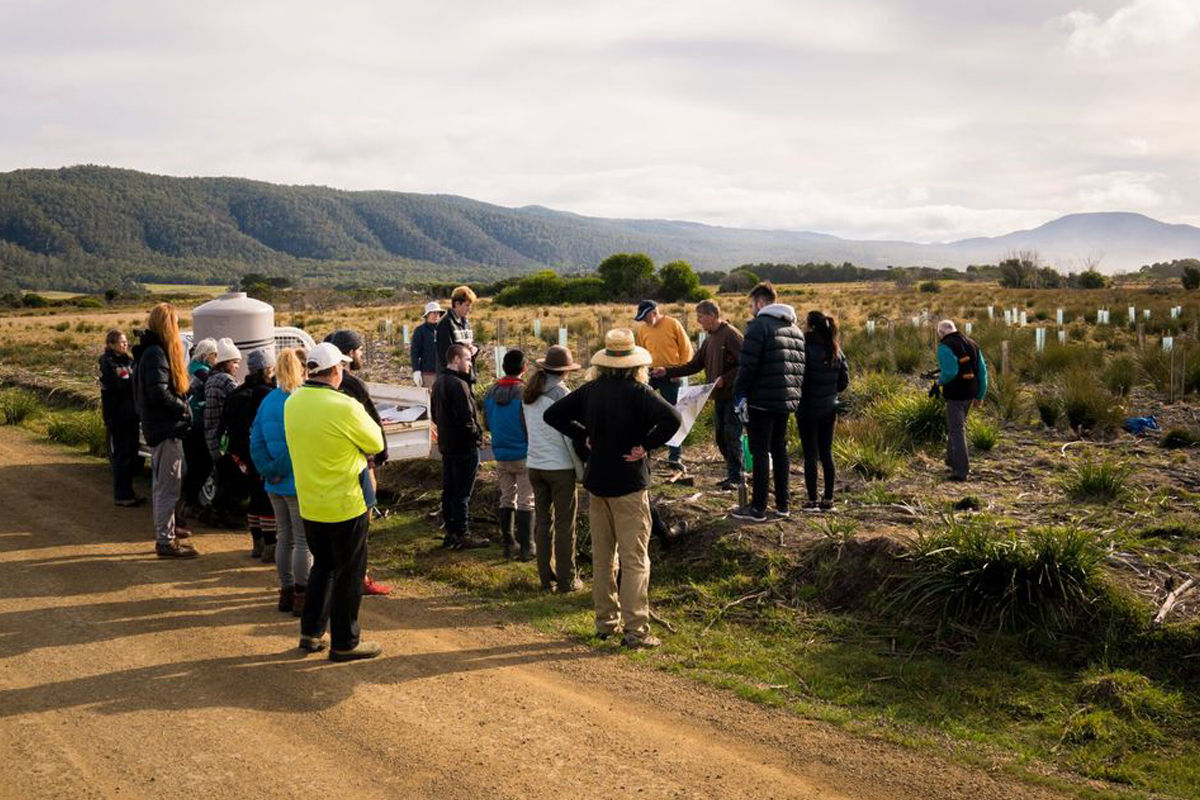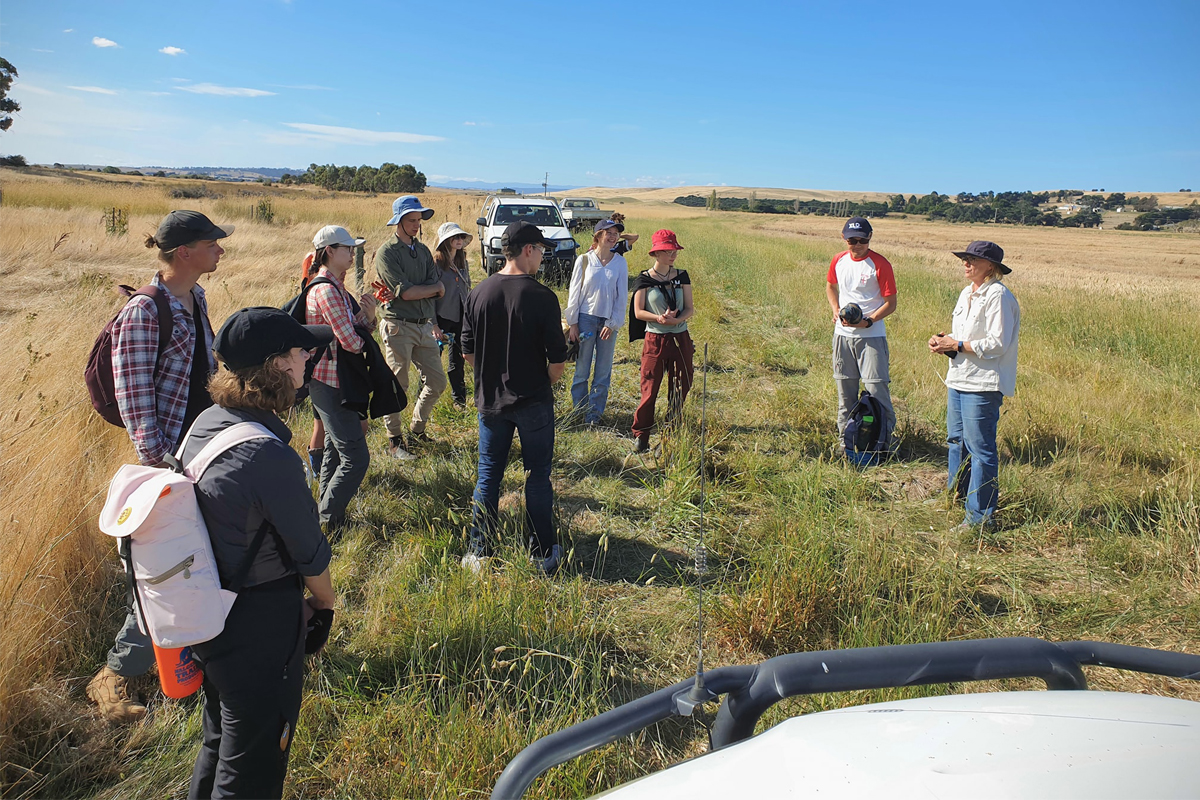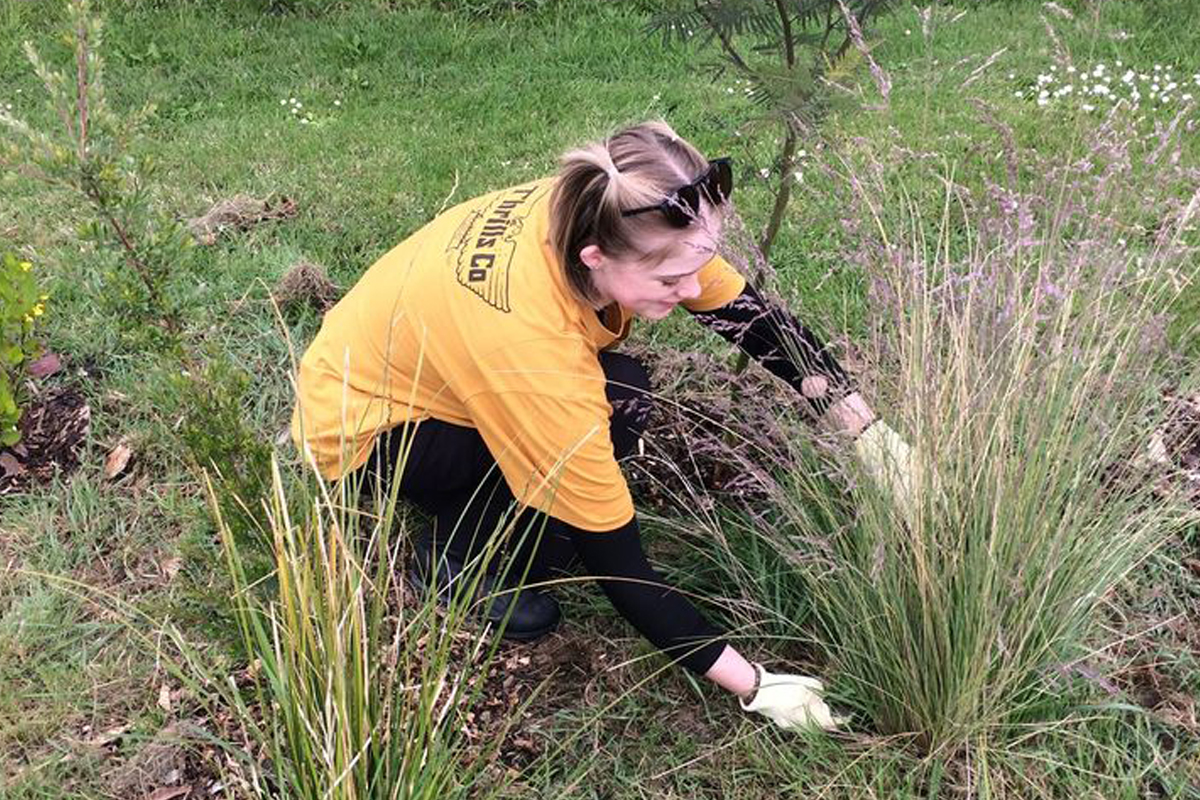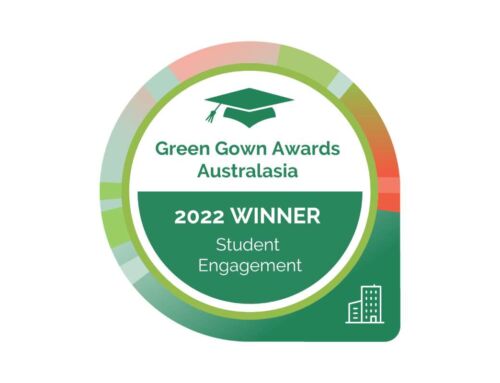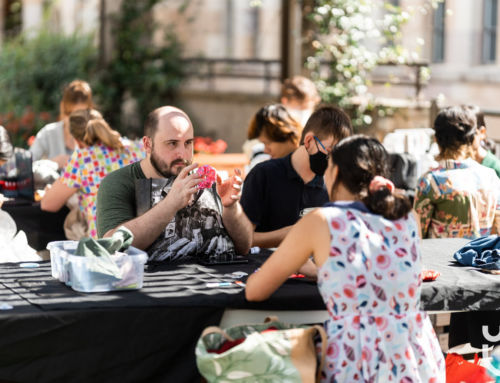Landcare Society – caring for the environment and community
The Tasmanian University and Community Landcare Society (the Landcare Society) is an initiative that connects students with volunteer land management and restoration opportunities across Tasmania, to create resilience in our landscapes and in our communities. The purpose of the initiative is to provide opportunities for students at the University of Tasmania to get involved in hands-on, on-ground environmental restoration work across the state. Since the project began in 2019 the Landcare Society has hosted over fifty events, supported more than 30 individual Landcare groups, worked with three local councils, co-hosted community engagement events with five other UTAS university societies, worked on eight different agricultural properties, and have engaged a total of 968 UTAS students across all our activities.
> The initiative
The Landcare Society began as a group of eager students who were inspired to get more involved with community Landcare following the 2019 Tasmanian Community Landcare Conference. Since then, we have worked with UTAS staff, the team at Landcare Tasmania, and Landcare groups across the state to connect nearly a thousand students with Landcare activities across the state. We work primarily on community environmental restoration projects, ranging from removing weeds from urban parks to restoring pine plantations back to native forests and restoring degraded wetlands.
The group was formed, in part, to give students interested in environmental management the opportunity to gain practical experience and build their skills outside of their formal university activities. One of the biggest pieces of advice we, as students are given at university, is to volunteer in order to build our skills and gain practical experience, however, we felt that there were few opportunities to do so in a way that we felt made a tangible impact, and that was realistic for students to participate in given their schedules. We give students the opportunity to be involved with hands-on land management activities, such as tree planting, weeding, and site maintenance, as well as developing their plant identification skills, learning how to plan and implement their own restoration projects, applying for grants, and gaining experience in community and stakeholder engagement. We primarily run events on weekends, and we provide transport in the form of carpooling to minimise barriers to participation. We also have an ongoing restoration project based on our Sandy Bay campus so students who work or have other commitments on weekends can still participate.
With the support of the Sustainability Team, staff from the Tasmanian University Student Association (TUSA) and staff members from the School of Geography, Planning, and Social Sciences, the Landcare Society have been able to deliver positive impacts on the natural environment, and on UTAS students who want to have hands-on experiences while connecting with incredible communities across Tasmania.
> Environmental and social benefits
The benefits of the Landcare Society are primarily environmental and social. We have made a significant contribution to environmental restoration in Tasmania. We have worked on large-scale projects such as the Skyline Tier restoration project, an initiative that aims to return 2000 hectares of pine plantation back to native forest, and with industry-leading agricultural organisations such as Tas Ag Co and Beaufront Farms to get students involved with restoration on farms. We have run 35 ecological restoration events, which consist of activities like tree planting, weeding, site maintenance, and monitoring, in a diverse range of landscapes, including agricultural areas, national parks, urban parks, forests, and coastlines. We have planted over 3000 trees and filled countless compost bags with weeds.
The social outcomes of the project are considerable. Landcare is about creating community connections, and we have enabled two traditionally disconnected groups – university students and those living in regional areas – to connect with each other and work together to tackle environmental problems. We have made lasting connections with landowners and communities across the state and we will continue to foster these connections for years to come by returning to project sites, being responsible for ongoing monitoring and management, and creating a legacy in the community. We are also focused on skill-building and employability, both for practical on-ground skills and project management and environmental monitoring skills. We give students the opportunity to strengthen and develop their skills outside of a classroom environment.
> Leadership and engagement
The Landcare Society is run by students, for students, and it is one of a handful of youth-focused Landcare groups in Australia. What began with one group of students wanting to get involved with ecological restoration has grown into a large group of dedicated and hardworking volunteers who have made a considerable impact in restoring degraded areas of Tasmania. We have created connections between students and community groups that would otherwise not have existed and enabled students to feel a connection and ownership to areas of the state that they would never have visited.
> Significance to the sector
The Landcare Society demonstrates how the club and society format, which is a feature across all UTAS Tasmanian campuses, can be a fantastic model to create change and have an impact that extends outside of the university campus, while still fostering community connection among students. Societies are a familiar part of the university landscape, and thus enable students who might be hesitant to seek out external volunteering opportunities the ability to get involved in a familiar environment.
> Wider societal impact
University students often experience poorer mental and physical health than other sectors of the population. People who volunteer with Landcare have been found to have improved physical and mental wellbeing and reduced healthcare costs. Connecting with people, connecting with the land, and getting out of the stressful university environment have an incredible impact on the students who volunteer with the Landcare Society.
> Learner/Graduate employer impact
According to SEEK, 85% of employers believe that volunteer work is as credible on a resume as paid work. The environmental sector is growing and there is a push for skills-building in this area. While we can’t provide people with accreditation, we can provide them with volunteering opportunities, skills development, and the opportunity to learn from experts in the field.

